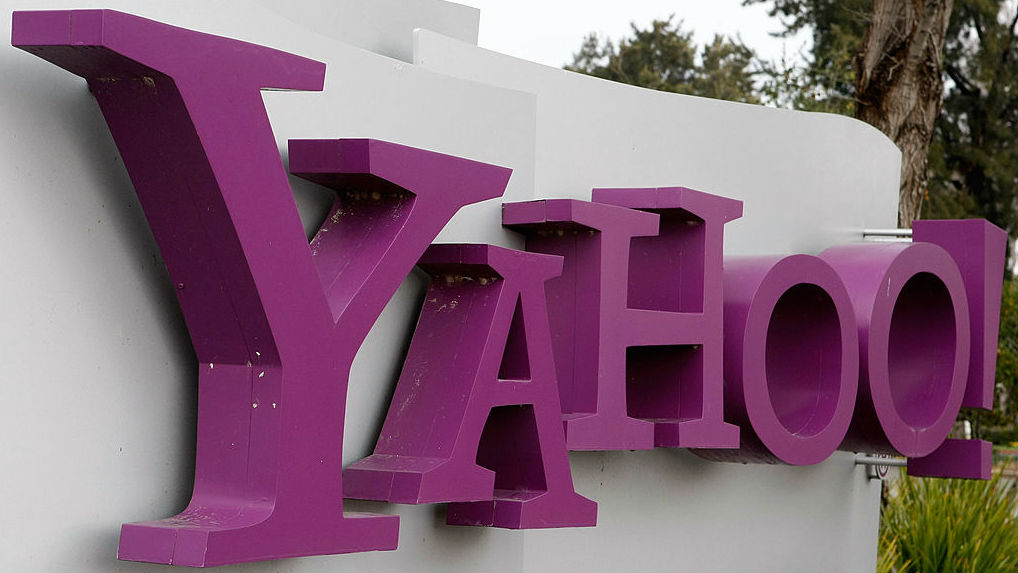US charges two Russian spies over Yahoo hack
Prosecutor refuses to rule out link with Moscow's alleged attempt to interfere with presidential election

A free daily email with the biggest news stories of the day – and the best features from TheWeek.com
You are now subscribed
Your newsletter sign-up was successful
Two Russian spies have been charged in the US over a massive breach of Yahoo, reports the BBC.
According to the US Department of Justice, Dmitry Dokuchaev and Igor Sushchin, both officers in Russia's Federal Security Service, conspired with criminal hackers as part of the 2014 breach that affected 500 million accounts. Two others have also been charged.
Mary McCord, acting assistant attorney general for national security, said: "We will not allow individuals, groups, nation states, or a combination of them to compromise the privacy of our citizens, the economic interests of our companies, or the security of our country."
The Week
Escape your echo chamber. Get the facts behind the news, plus analysis from multiple perspectives.

Sign up for The Week's Free Newsletters
From our morning news briefing to a weekly Good News Newsletter, get the best of The Week delivered directly to your inbox.
From our morning news briefing to a weekly Good News Newsletter, get the best of The Week delivered directly to your inbox.
The Guardian says the news comes amid "intense political controversy over Russian interference in the US election", which included a data breach of the Democratic National Committee.
McCord refused to comment on whether there was a link between the Yahoo incident and Moscow's alleged attempts to sway the White House race in favour of Donald Trump.
Yahoo said: "The indictment unequivocally shows the attacks on Yahoo were state-sponsored. We are deeply grateful to the FBI for investigating these crimes and the DOJ for bringing charges against those responsible."
The internet company was condemned for a delay in informing users about the breach, which it said saw a raft of data stolen including names, email addresses, telephone numbers, dates of birth and encrypted passwords, but not credit card details.
A free daily email with the biggest news stories of the day – and the best features from TheWeek.com
The four suspects are also alleged to have targeted Google accounts. Some users of BT and Sky email services were also hit.
-
 What to know before filing your own taxes for the first time
What to know before filing your own taxes for the first timethe explainer Tackle this financial milestone with confidence
-
 The biggest box office flops of the 21st century
The biggest box office flops of the 21st centuryin depth Unnecessary remakes and turgid, expensive CGI-fests highlight this list of these most notorious box-office losers
-
 What are the best investments for beginners?
What are the best investments for beginners?The Explainer Stocks and ETFs and bonds, oh my
-
 Why Britain is struggling to stop the ransomware cyberattacks
Why Britain is struggling to stop the ransomware cyberattacksThe Explainer New business models have greatly lowered barriers to entry for criminal hackers
-
 Who are the new-wave hackers bringing the world to a halt?
Who are the new-wave hackers bringing the world to a halt?The Explainer Individual groups and nations are beginning to form concerning partnerships with new ways to commit cybercrime
-
 Jaguar Land Rover’s cyber bailout
Jaguar Land Rover’s cyber bailoutTalking Point Should the government do more to protect business from the ‘cyber shockwave’?
-
 Airplane crash-detection systems could be vulnerable to hackers
Airplane crash-detection systems could be vulnerable to hackersUnder the Radar 'The idea scares the shit out of me,' one pilot said
-
 Elon Musk's DOGE website has gotten off to a bad start
Elon Musk's DOGE website has gotten off to a bad startIn the Spotlight The site was reportedly able to be edited by anyone when it first came online
-
 The Internet Archive is under attack
The Internet Archive is under attackUnder the Radar The non-profit behind open access digital library was hit with both a data breach and a stream of DDoS attacks in one week
-
 How cybercriminals are hacking into the heart of the US economy
How cybercriminals are hacking into the heart of the US economySpeed Read Ransomware attacks have become a global epidemic, with more than $18.6bn paid in ransoms in 2020
-
 Language-learning apps speak the right lingo for UK subscribers
Language-learning apps speak the right lingo for UK subscribersSpeed Read Locked-down Brits turn to online lessons as a new hobby and way to upskill